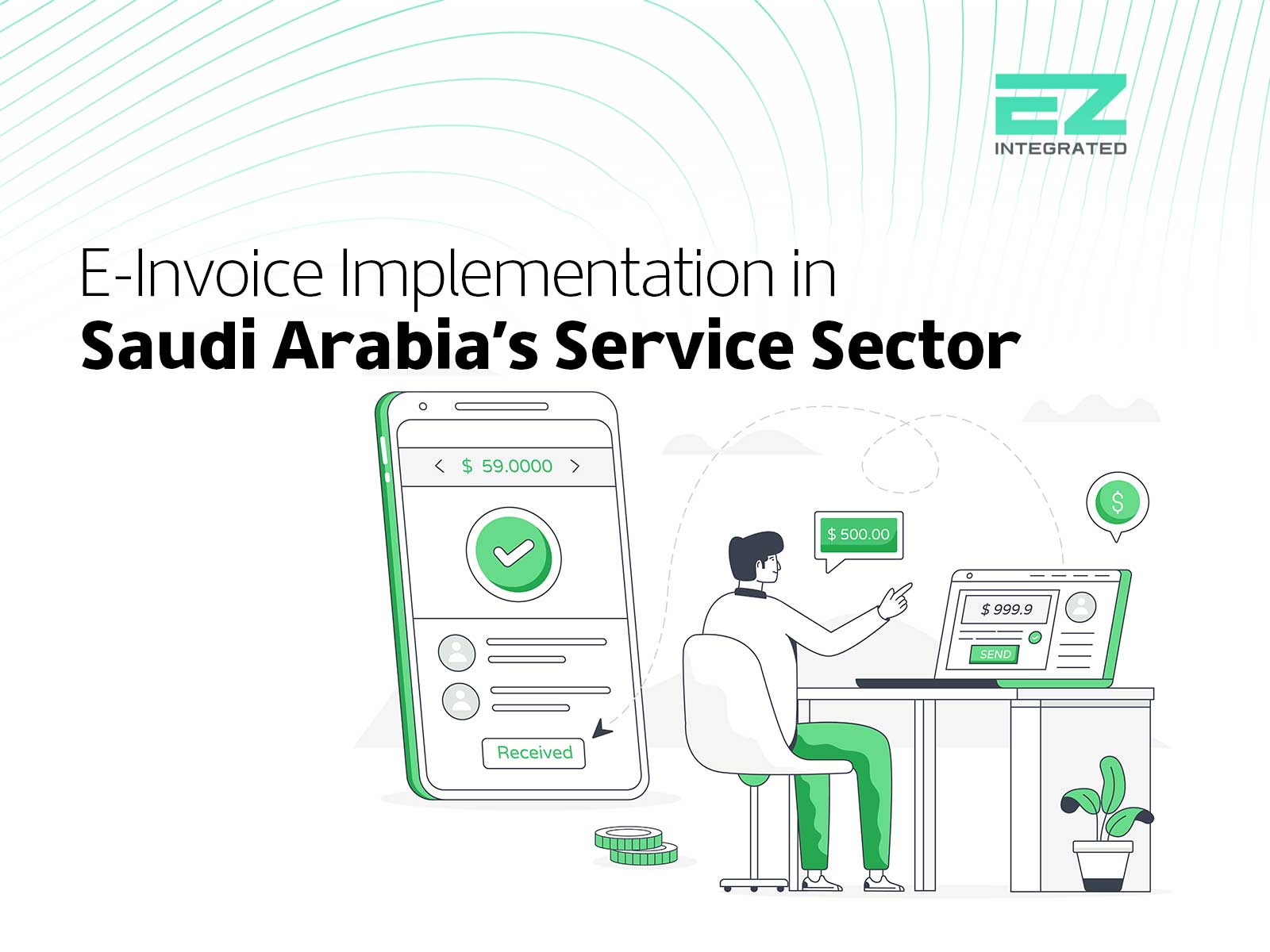In Saudi Arabia’s fast-evolving digital economy, e invoice implementation is no longer just a technical upgrade. It’s now a strategic necessity, especially for service sector businesses under Vision 2030.
From clinics and logistics companies to law firms and consulting agencies, e invoice implementation is central to tax compliance and financial streamlining.
In this article, we break down the phases of e invoice implementation, key challenges, compliance requirements, and how EZ Integrated can support your smooth digital transition.
Why the Service Sector Must Prioritize E Invoice Implementation
Saudi Arabia’s service sector contributes over 50% to the national GDP, according to the General Authority for Statistics.
It includes healthcare, transport, education, hospitality, legal, and IT services.
Since all VAT-registered service businesses fall under mandatory compliance, they are directly impacted by each phase of e invoice implementation launched in 2021.
Understanding the Phases of E Invoice Implementation in Saudi Arabia
To ensure full compliance, service businesses must understand the two phases of e invoice implementation set by ZATCA:
– Phase 1: Generation and Storage
Effective since December 4, 2021, this phase requires generating valid e-invoices with all mandatory fields.
Invoices must follow PDF/A-3 format with an embedded XML file. No real-time integration with ZATCA is required at this stage.
– Phase 2: Integration and Clearance
Launched on January 1, 2023, this phase mandates real-time e invoice implementation through integration with ZATCA’s “FATOORA” platform.
Invoices must be submitted to ZATCA for instant validation before reaching the customer. Implementation follows a wave-based schedule, depending on annual revenues.
At this point, e invoice implementation becomes more technical and requires direct system integration.
Also read: How to Overcome ZATCA Phase 2 E-Invoicing Challenges
Key Requirements for E Invoice Implementation in the Service Sector
Before initiating e invoice implementation, service sector companies must meet the following criteria:
- Register for VAT.
- Use an invoicing system compatible with ZATCA standards.
- Issue invoices in XML or PDF/A-3 format with XML attachment.
- Activate a digital certificate for secure electronic signing.
- Train staff to issue compliant e-invoices.
- Partner with an approved e-invoice solution provider for system integration.
Steps to Ensure Seamless E Invoice Implementation
To succeed in every phase of e invoice implementation, service businesses must take both technical and organizational steps:
1. Review Technical Readiness
Check whether your current accounting system supports e-invoicing based on ZATCA’s standards.
2. Choose an Authorized E Invoice Provider
Work with certified providers like EZ Integrated to enable seamless integration with “FATOORA”.
3. Train Staff on E Invoice Implementation Phases
Educate your finance team on issuing, reviewing, and handling invoice validation errors.
4. Test Your Integration in a Sandbox Environment
Conduct test runs before your go-live deadline to avoid any disruptions.
Also read: 5 Benefits of Partnering with E-Invoicing Solution Providers
EZ Integrated: Your Trusted Partner for E Invoice Implementation
EZ Integrated is a ZATCA-approved e-invoicing solutions provider. We support you through every step of e invoice implementation, from setup to full integration with “FATOORA”.
Why Choose EZ Integrated?
- Seamless compatibility with your current accounting systems.
- Dedicated technical support and expert guidance.
- Employee training for smooth operation.
- Scalable solutions for businesses of all sizes.
Don’t wait until the deadline hits. Contact EZ Integrated today to book your free consultation and move confidently through every stage of e invoice implementation.
